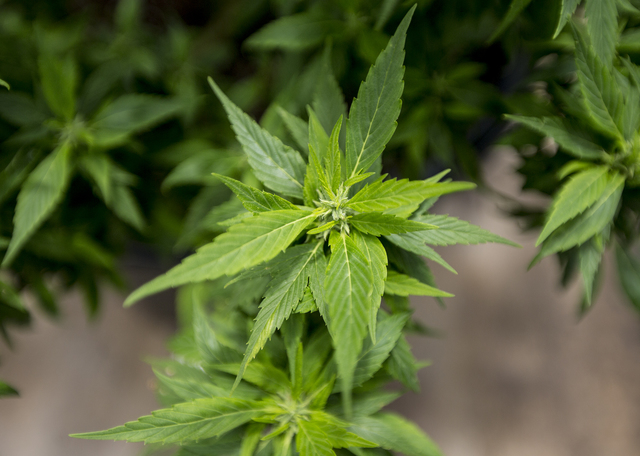A bill to replace the term “medical marijuana” with “medical cannabis” in state law is moving through the Legislature, though most other marijuana-related measures have died. ADVERTISING A bill to replace the term “medical marijuana” with “medical cannabis” in state
A bill to replace the term “medical marijuana” with “medical cannabis” in state law is moving through the Legislature, though most other marijuana-related measures have died.
Senate Bill 786, introduced by state Sen. Mike Gabbard, D-Oahu, says the word “marijuana” originated as a “slang term” and carries “prejudicial implications rooted in racial stereotypes” from the early 20th century when the drug was first criminalized in the United States. “Cannabis” is a more accurate term, the bill says, and carries “no such negative connotations.”
If passed, the word change would affect state statute, Hawaii Administrative Rules and require the state Department of Health to revise all its documents, letterheads and websites to conform.
The bill is co-sponsored by state Sen. Russell Ruderman, D-Puna. Earlier this week, it crossed over to the House.
Other marijuana measures moving forward include:
• Senate Bill 305, introduced by state Sen. Rosalyn Baker, D-Maui, would require dispensaries to retain video footage and recordings of their operations for at least 45 days.
Existing law doesn’t address data retention requirements, Baker’s proposal states, and instead defers to the DOH’s administrative rules which require video surveillance be kept at least 365 days. The bill says a year-long requirement could compromise clarity of footage and “impede overall security” because licensees would have to decrease the frame capture rate of recordings to have enough storage.
• House Bill 263, introduced by Scott Saiki, D-Oahu, would impose a General Excise Tax on a percentage of dispensaries’ gross income and deposit it into a special fund to be used for public health purposes such as drug recognition training for law enforcement officers.
Many other marijuana proposals languished in their original chamber including:
• Legalizing marijuana for anyone over age 21 (sponsored by Ruderman). Other decriminalization measures also died.
• Exempting military veterans from paying medical marijuana registration fees (sponsored by Ruderman).
• A cap on retail prices for medical marijuana and manufactured marijuana products.
• A limit on THC levels in manufactured marijuana products and requiring warning labels on packaging.
• Expanding the list of qualifying debilitating conditions for medical use to include lupus, epilepsy, multiple sclerosis, arthritis, autism, anxiety, depression, insomnia and stress.
• A continuation of the caregiver program (currently set to end in 2018), allowing dispensaries to sell edible cannabis products and allowing felons to work in the marijuana industry five years after completing their prison sentence.
• Establishing state-regulated collectives to allow patients with excess marijuana to sell it to other collective members (sponsored by Ruderman and House counterpart state Rep. Joy San Buenaventura, D-Puna).
• Reassessing the state’s classification of marijuana as a Schedule 1 drug (sponsored by San Buenaventura).
• Establishing a minimum blood concentration content of tetrahydrocannabinol (THC) for driving under the influence (sponsored by state Sen. Josh Green, D–Kona, Ka‘u).
• A ban on marijuana products created to appeal to children.
Hawaii legalized marijuana for medical use in 2000, but until recently never provided a way for patients to legally buy it.
Last year, the state Department of Health awarded licenses to eight companies to open Hawaii’s first dispensaries. Lau Ola, a company led by former banana farmer Richard Ha, and Hawaiian Ethos, led by venture capitalist Bill Richardson, will open Hawaii Island’s first dispensaries.
San Buenaventura said this week she was disappointed several bills did not move forward, but she’s still hoping two concurrent House Resolutions will get a hearing. The resolutions, like her bill, request the federal drug administration remove marijuana as a Schedule 1 drug.
However she said passing sweeping reform to state marijuana law this year is unlikely, particularly under new federal leadership. Some marijuana supporters believe President Trump’s team has expressed mixed views on its stance on marijuana.
“We need to go kind of slow right now,” San Buenaventura said. “I don’t want to set people up for federal prosecution even though it may be legal statewide. Not after what’s come out of the Trump administration. We need to protect existing medial marijuana patients.”
Email Kirsten Johnson at kjohnson@hawaiitribune-herald.com.



